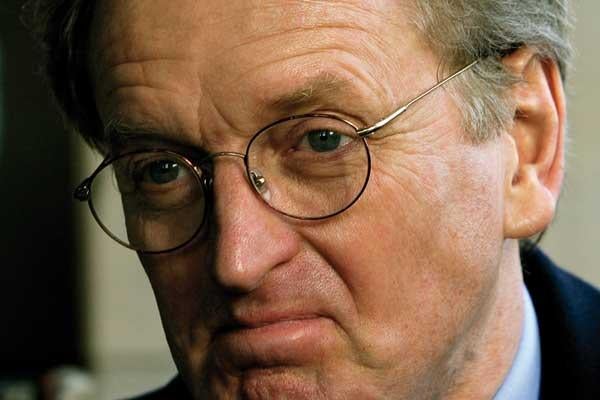
Former Press Complaints Commission chairman Sir Christopher Meyer has urged Lord Justice Leveson to strengthen rather than abolish the current system of self regulation.
And he has insisted that despite the many criticisms which have been made of the PCC and its handling of the hacking scandal – ‘the hybrid system of press regulation dealt with the affair exactly as it was meant to do”.
Recalling his time as press secretary for John Major, Meyer warned against any move towards statutory regulation of the press.
Delivering the annual lecture at the Worshipful Company of Stationers and Newspapermakers he said: ‘Any government, even one in terminal decay like John Major’s in the mid-90s, had a significant in-built advantage over the press through its control of the public flow of official information.
‘This advantage has not been eliminated by the Freedom of Information Act. It was not, therefore, difficult to move to the conclusion that any state regulation of the press was in principle offensive and that a free press was fundamental to a healthy democracy.”
Speaking about the way the PCC dealt with the hacking scandal under his leadership, Meyer said: ‘In 2006 and 2007 a crime was investigated, a successful prosecution was mounted, two men went to jail, an editor resigned, and, after the trial, the regulator – the PCC – launched an inquiry, on the basis of which it published a widely-welcomed report that established new rules for the use of subterfuge by the press.
‘Even the redoubtable Professor Roy Greenslade of the Guardian was moved to say complimentary things about the 2007 report.”
He added: ‘It cannot be the business of a non-statutory regulatory body, whether the PCC or its successor, to enforce the criminal law. It would be like giving a Police Community Support Officer powers of arrest without the warrant…
‘The PCC certainly needs more powers and more independence in a process of continuing evolution. I have set out some ideas in my witness statement [to the Leveson Inquiry]. But, the plain truth is that the phone-hacking scandal is neither useful nor even relevant to this process.
‘Is there any proposal for press regulation, which has come before Leveson, short of appointing a commissar in every news room with x-ray eyes and telepathic powers, that would have nipped phone-hacking in the bud?”
Describing the Leveson Inquiry as a combination of ‘show trial, seminar and truth commission”, he noted that as a formal judicial inquiry ‘it eclipses in legal standing the unfinished Chilcot Inquiry into the origins and conduct of the Iraq War, a much more important subject”.
And although Lord Justice Leveson insists he has not made up his mind yet about his recommendations, Meyer said: ‘You cannot emerge from Court 73 at the Royal Courts of Justice without the clear impression that the fundamental premise of the proceedings is that the current system of regulation is broken, has lost the confidence of the public and needs to be replaced. If this proves not to be the case, I will, with the permission of the Master, eat my socks in the Company’s courtyard.”
Meyer insisted that the current system ‘cries out to be developed and strengthened, not abolished’and he gave Lord Justice Leveson five recommendations for the make-up of the new system:
- “That it is more independent from its paymasters than its predecessor…
- “That, if fines and binding contracts are to be introduced, armies of lawyers do not follow in their wake…
- “That ordinary people across the UK, who lay no claim to celebrity or public notoriety, are not forgotten in what has been so far a largely metropolitan debate between elite groups…
- “That it is fit to confront the challenge of the internet and look at regulation through digital eyes. There is a great danger in this Inquiry of generals fighting the last war. So much of what has been said to Leveson, so many of the characters, who have paraded before him, are so yesterday, so pre-digital. The ambition of some to regulate the blogosphere is a fool’s errand…
- “That it is infused with the understanding that a core freedom is at stake, one so precious that in the United States it is protected by the First Amendment to the Constitution. I was speaking at the Law Faculty of the University of North Carolina a couple of weeks ago. People were stunned that an inquiry, set up by the government and reporting to the government, should have any say at all on the boundaries of freedom of expression.’
Email pged@pressgazette.co.uk to point out mistakes, provide story tips or send in a letter for publication on our "Letters Page" blog
